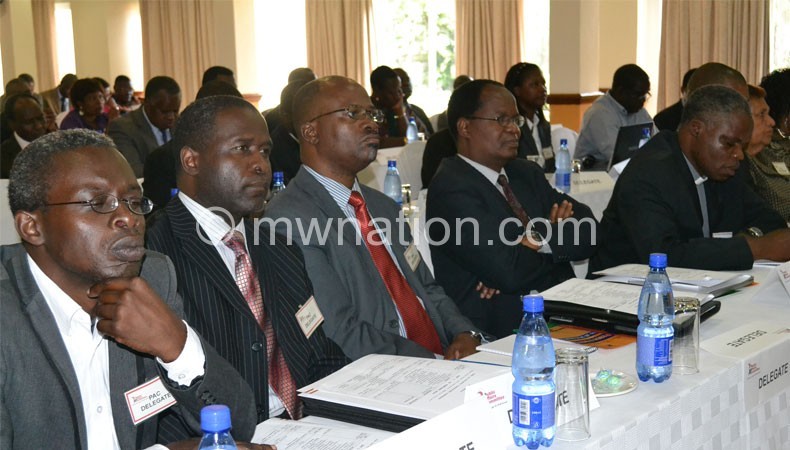Norway faults leaders, says corruption on the rise even in churches

Norwegian Ambassador Asbjorn Eidhammer on Tuesday faulted Malawi’s leaders and civil society organisations (CSOs) for rising corruption which he said has even extended to the clergy.
In his address to the Public Affairs Committee (PAC) Third All-Inclusive Stakeholders Conference in Blantyre, Eidhammer also analysed the country’s presidents from the 30-year-old one-party State of the Malawi Congress Party (MCP) under founding president the late Hastings Kamuzu Banda to the post-1994 democracy presidents Bakili Muluzi, the late Bingu wa Mutharika and incumbent Joyce Banda in that order.
He observed that the strengths and weaknesses of the country’s four post-independence leaders is impacting on the nation.
Said Eidhammer: “I have seen corruption spreading in Malawi since early 2000. I have also seen it in the civil society, even among church people.”
The Ambassador observed that Malawi started with 30 years of dictatorship that left behind an intimidated population but efficient civil service.
He said the single-party rule was followed by a democratic government which ushered in a freer Malawi with an independent Judiciary, the emergence of critical and diverse views and human rights watchdogs.
However, he said, the first 10 years of multiparty democracy ended with Muluzi attempting to change the Constitution to stay in power.
Eidhammer noted that Mutharika started well in 2004 with the country recording food surplus and poverty reduction.
However, he faulted Mutharika for a poor human rights record.
Banda ascended to the presidency on April 7 2012 in line with constitutional order following the death of Mutharika.
Eidhammer said despite several positive strides, the Banda administration was embroiled in the Capital Hill cashgate crisis which saw billions of kwacha in public funds looted.
He said the Capital Hill plunder “has hardly been seen in countries we would naturally compare with”.
In his presentation at the same conference, Professor Wiseman Chijere Chirwa from the University of Malawi’s Chancellor College, said Malawi remains poor after 50 years of independence because of poor development plans.
He appealed to Malawians to take available opportunities to transform the country.
Chirwa attacked the Malawi middle-class for being less interested in holding governments accountable with the aim of wanting to benefit from them.
PAC organised the two-day meeting under the theme ‘Malawi at a crossroads: Enhancing transformative leadership through holding leaders and ourselves accountable’. The meeting followed on previous two sessions in March 2012 and October 2012 which raised several issues to be addressed by authorities.






For a change, I agree with what the ambassador has said. It should be pointed out, however, that the present regime is a “gift” to us from these foreign governments and their surrogates (NGO’s), who ganged up on, and really pilled on late Bingu after his spat with the British diplomat. These governments should be ashamed of the effects of the regime change they imposed on us. The current government has taken us back in economic development, at least ten years. A big opportunity cost indeed!